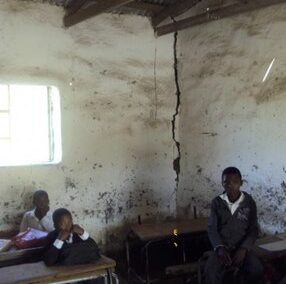Against the backdrop of anaemic economic growth, rising taxes and a stubbornly high unemployment rate, South Africans will find it more difficult to save, and invest in their children’s education and thus their future.
Education is a key factor in improving the fortunes of any nation. Emerging markets and developing economies especially have to ensure that their education systems are functioning properly and that the majority of citizens have access to quality education in order to establish a wealthy and stable society. The four Asian Tiger economies, Taiwan, South Korea, Singapore and Hong Kong, in a span of around 40 years since the 1960s, managed to develop rapidly and are now some of the most prosperous and technologically advanced economies in the world. They achieved rapid industrialisation levels by heavily investing in their human capital – upgrading their education infrastructure, developing the intellectual abilities of their citizens, and fostering and retaining their educated workforce.
South Africa, on the other hand, has failed in several ways to sustain and improve its education system and foster a highly educated and skilled workforce. Not only do we consistently rank at the bottom of the world in terms of our provision of quality maths and science subjects, but we are also making it harder for the population to afford access to the country’s remaining well-functioning public and private schools. There has been a major decline in the proportion of households that are able to save for education since 2010. This is according to the IRR’s South African Survey 2019, released in February.
The proportion of households with an education policy or that are saving for education has dropped from 63.0% in 2010 to 43.0% in 2018. This is a decline of almost 32%. Not surprisingly, poorer households are increasingly under financial pressure to save for education.
The proportion of households earning R6 000 per month and less that are saving for education has declined from 56.0% in 2010 to 18.0% in 2018. Lower to middle income earners are also struggling to save for education. Only 45% of households earning a monthly income of between R14 000 and R20 000 can afford to save for education – down from 70% in 2010. Between 2010 and 2018, the proportion of households that earn R20 000 to R40 000 have also seen a decline in saving. Only high income households, those earning above R40 000, are still able to do so; in this category, saving for education has increased 7.4% since 2010.
This decline is particularly concerning given the importance of quality education in fighting poverty and unemployment. Many state schools are in disarray while private schools (which come with a hefty price tag) and universities still offer quality education. In 2018, 12.9% of people with a tertiary education are unemployed against 34.0% who did not complete their secondary education. However, our current political and economic environment hampers South Africans from investing in their children’s future. The IMF has recently revised South Africa’s economic growth rate for 2019 down from 1.4% to 1.2%, placing South Africa as one of the worst performers in the Sub-Saharan region. This of course has a ripple effect throughout South African society. It explains why our unemployment rate, by the official definition, has hovered close to 30.0%.
Unemployment further impacts upon people’s pockets – forcing them to rely on the government, and increasing the financial burden on employed family members. Social grants as a proportion of the total population stood at 30.0% in 2018 (that is 17 500 000 grants paid out, and the trend is set to continue upward). South Africans are also overtaxed. This further erodes individuals’ savings which is why South Africa is starting to see a tax revolt in the form of e-tolls and TV licences not being paid, the rise in buying of illicit cigarettes and the wealthy moving their money offshore.
It is imperative that South Africa restores investor confidence and applies the necessary economic reforms in order to stimulate economic growth. This would improve millions of people’s job prospects, GDP per capita would increase and South Africans would have more room for manoeuvre in terms of saving for education and investing in an education policy. Removing damaging affirmative action policies and allocating more resources to especially rural schools would further improve South Africa’s education system. A more stable socio-economic environment would also provide an incentive for South Africa’s educated classes to remain in the country and contribute in the form of taxes and job creation.
Gerbrandt van Heerden is an Analyst at the Institute of Race Relations
If you like what you have just read, become a Friend of the IRR if you aren’t already one by SMSing your name to 32823 or clicking here. Each SMS costs R1.’ Terms & Conditions Apply.
Photo: Equal Education for GroundUp https://www.groundup.org.za/article/spending-school-infrastructure-does-matter/

